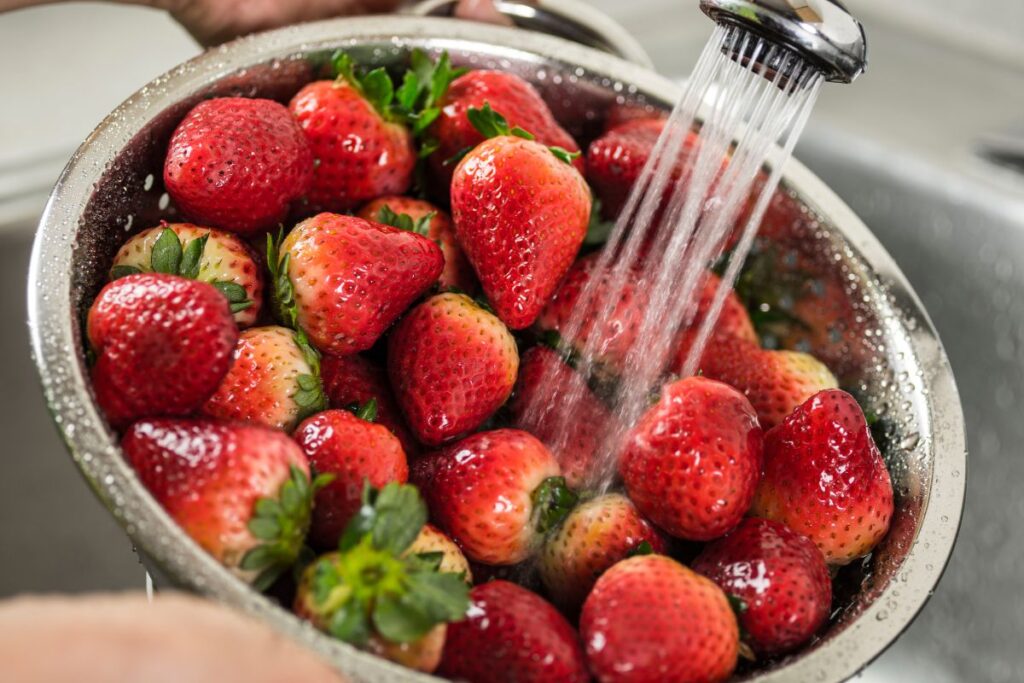In today’s health-conscious world, the safety of the fruits and vegetables we consume is paramount. Recent studies by Consumer Reports and other health watchdog organizations underscore the importance of properly washing produce to minimize exposure to potentially harmful chemicals and bacteria.
Understanding Pesticide Residues
Data from the U.S. Department of Agriculture’s Pesticide Data Program indicates that most foods contain pesticide levels below what the Environmental Protection Agency considers unsafe. However, these levels might still pose a risk, particularly for vulnerable groups such as children. The concern arises because many pesticides used today can be harmful even at low doses over time.
Eating a variety of fruits and vegetables is crucial for maintaining good health, yet the lingering fear of pesticide contamination may deter some people from consuming these vital nutrients regularly. Through proper cleaning techniques, however, it is possible to significantly reduce these risks and enjoy the health benefits of fresh produce safely.
Best Practices for Washing Produce
Rinsing produce under running water has been shown to effectively remove much of the pesticide residues present on the surface. Research further demonstrates:
- Unwashed produce retains notably higher levels of pesticides compared to those washed.
- Simple washing with water is usually sufficient; however, using mild soaps or designated produce cleaners can offer additional safety assurances, without the absorption issues posed by harsher agents like bleach.
While rinsing with water is typically effective, the process also helps eliminate soil and dirt that could be contaminated with toxic heavy metals and other pathogens that could lead to foodborne illnesses, such as those caused by Listeria or Salmonella bacteria.
Picking Safer Options: Organic vs. Conventional
For consumers especially concerned about pesticide use, organic produce is a viable option. According to regulations, organic fruits and vegetables are cultivated without the use of synthetic pesticides or fertilizers. However, due to higher costs and availability issues, not everyone might choose to switch completely to organic options.
For those looking to balance cost and safety, understanding which types of conventional produce typically have higher or lower residues can guide buying decisions. Consumer Reports identifies high-risk items which include strawberries, blueberries, and green beans; whereas carrots, onions, and mushrooms often carry less pesticide residue.
The Impact of Low-Dose Pesticides on Health
The potential long-term health effects of continuous low-dose exposure to pesticides include serious conditions such as heart disease, cancer, and type 2 diabetes. It is inevitable that mere washing cannot remove all traces of chemicals. Therefore, being informed about the comparative risks associated with different produce types can help minimize exposure.
Further quality research is needed to conclusively determine the direct correlations between pesticide residues and specific health outcomes. Meanwhile, practical approaches to washing and selecting produce can substantially mitigate potential risks.
Final Recommendations
Staying educated about where your produce comes from and how it’s been treated before it reaches the store shelf can empower you to make healthier choices. Here are some final guidelines:
- Always rinse fresh fruits and vegetables under running water prior to consumption.
- Consider purchasing organic for highly contaminated produce like leafy greens and berries.
- Stay updated with reports from reputable sources regarding pesticide residues in food items, helping to adjust purchase habits effectively.
By implementing simple, careful cleaning practices and staying informed, consumers can greatly reduce their exposure to pesticide residues and ensure a healthier diet for themselves and their families.

